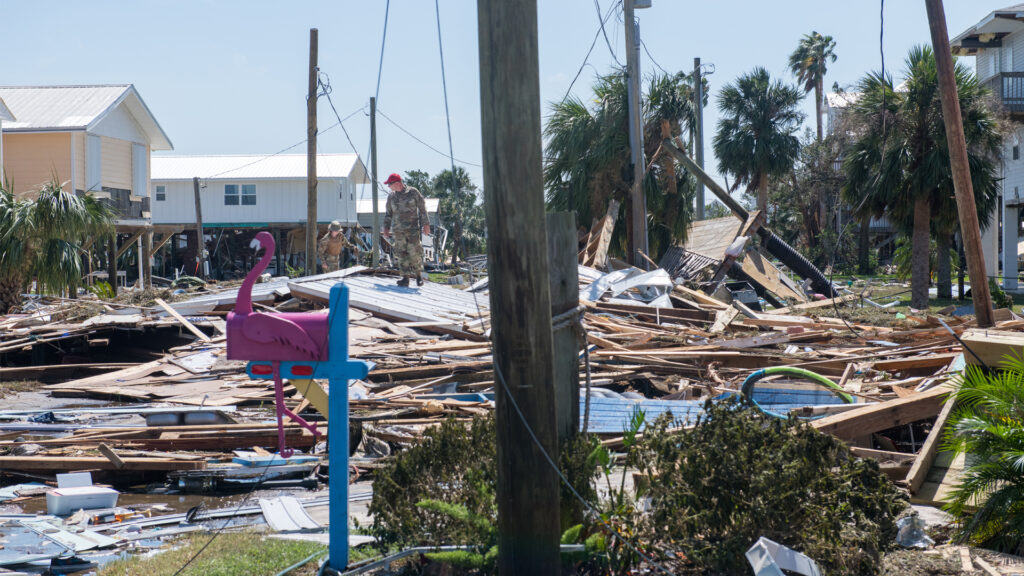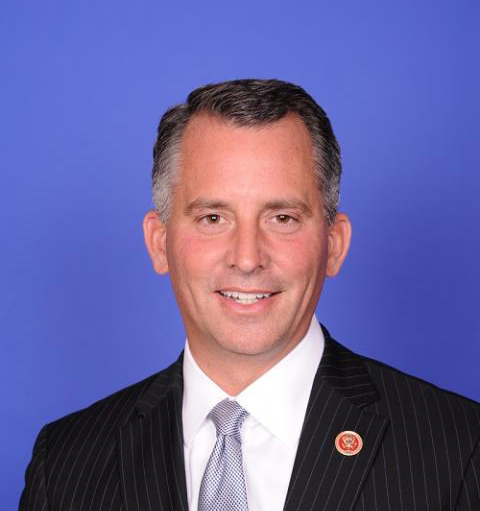By David Jolly, former U.S. representative
Climate change is real, and its effect on life, safety and property are tragically apparent. Politicians who deny this aren’t engaging in legitimate debate; they’re wasting our time.
As the headlines from Hurricane Helene are appropriately focused on the immeasurable loss of life and entire communities, there will also be a measurable economic loss. In states like Florida and others where lawmakers and governors have played the denial game and failed to address the root cause of much of our devastation, it’s time for voters to demand something better, something smarter. The same holds true of policymakers in Washington.
Taxpayers, through an inevitable act of Congress, will bear the brunt of the catastrophic losses incurred by Hurricane Helene. Private insurance will do its part, but inevitably private insurance will be insufficient and, in some cases, shirk its responsibility, as CBS’ “60 Minutes” just revealed accusations of Florida homeowners being shortchanged by carriers after Hurricane Ian.

There’s indeed a logical argument for families and businesses accepting risk for their own properties — it’s part of the American economic way. But in times of disaster, there’s also a strong argument for a nation taking care of its own. And we eventually do, time and time again.
From hurricanes in the South to wildfires in the West, ice storms in the North, flooding in the Plains, tornados, droughts and other natural disasters, Congress always responds with billions of taxpayer dollars in financial relief to communities. As private markets fail, the government steps in. The financial repetition raises the question of whether this is the most efficient way to govern our responses. It seems not.
First, Congress should establish a national catastrophic fund to reinsure state catastrophic funds like Florida’s. I introduced such legislation as a young member of Congress, and it was endorsed by some of the most influential industry partners in home building and home ownership. Instead of governing by emergency bailouts, perhaps we should govern by sober actuarial science. Pre-fund against major losses, with shared responsibility and sound economics.
Such a two-tiered catastrophic fund approach would also unleash private insurers in high-risk regions of the country to enter the market, knowing they could privately underwrite most risks, including storm-related losses, but with the backstop of a state and federal catastrophic fund to absorb incidents of historic loss.
Second, we must make historic investments in climate resiliency for existing communities throughout our state. From undergrounding utilities to elevating properties, roadways and infrastructure, every day we delay is a gamble of immense economic risk. Many of the politicians we have elected throughout the state choose not to pay for smart investments that would address the increasing risk of catastrophe. The reality is we pay now or we pay later, and most of our politicians in Tallahassee and throughout Florida have failed us in responsibly governing.

Finally, we should eliminate the public burden for any new development in high-risk corridors. Building the new mansion on the beach, ignoring the reality of climate science in locating new developments, new entertainment complexes, or new industries around the state — you’re on your own. You must bear the entire risk or find a private insurer to share it. Taxpayers shouldn’t be responsible for your obviously risky decision.
For communities that already exist in high-risk corridors, including those who have suffered such great loss in recent days, we must inevitably share in the recovery and provide the state and federal resources necessary to respond to such devastating loss. These are our neighbors and friends for whom we should shoulder compassionate communal responsibility.
But going forward, things in Florida have to change. It’s time to accept science, govern by economic reason and embrace responsible governance. It hasn’t happened for a long time in Tallahassee and elsewhere. Now is the time.
David Jolly is a former member of Congress from Pinellas County. This opinion piece was originally published by the Tampa Bay Times, which is a media partner of The Invading Sea. Banner image: Flooding at MacDill Air Force Base in Tampa following Hurricane Helene (U.S. Air Force photo by Capt. Kaitlin Butler and 2nd Lt. Laura Anderson, via Defense Visual Information Distribution Service).
If you are interested in submitting an opinion piece to The Invading Sea, email Editor Nathan Crabbe at ncrabbe@fau.edu. Sign up for The Invading Sea newsletter by visiting here. To learn more about climate resilience, watch the video below.



